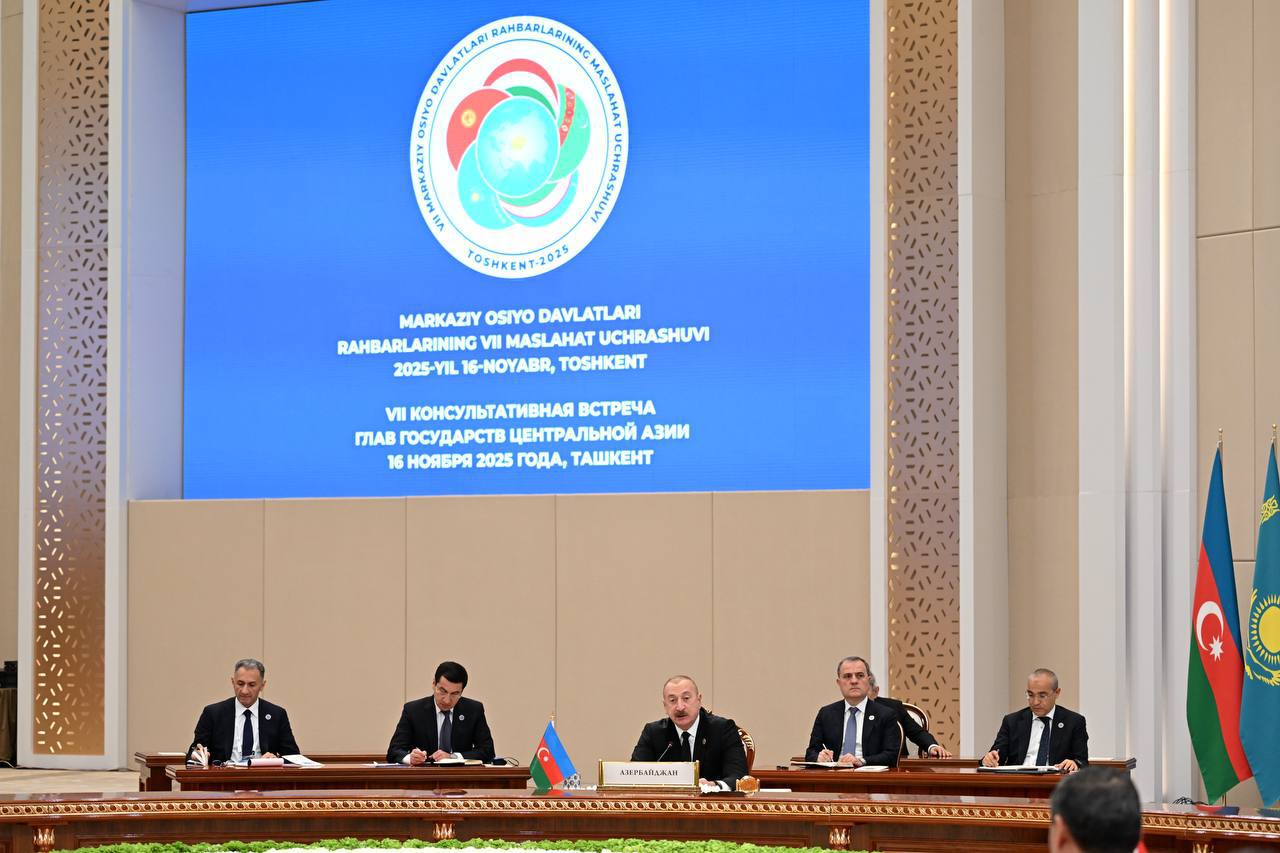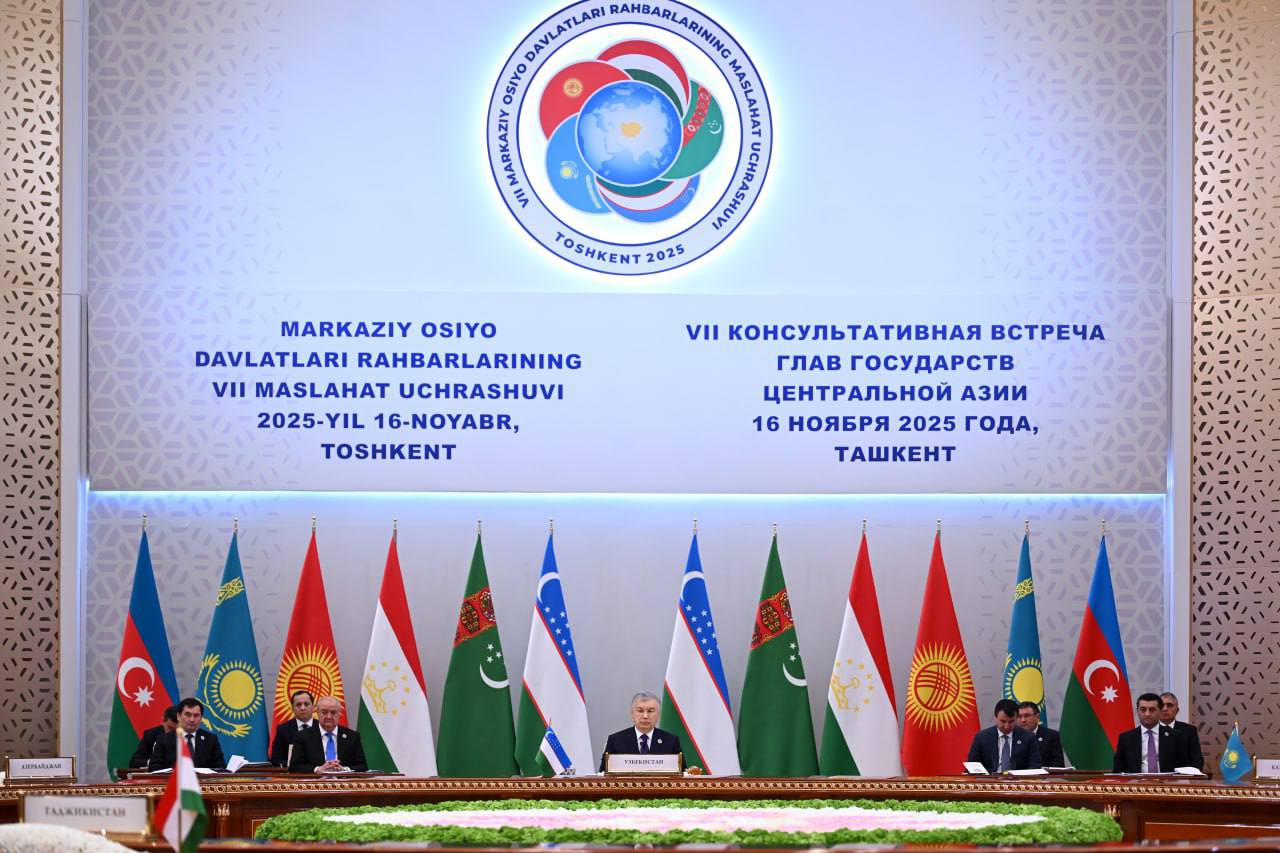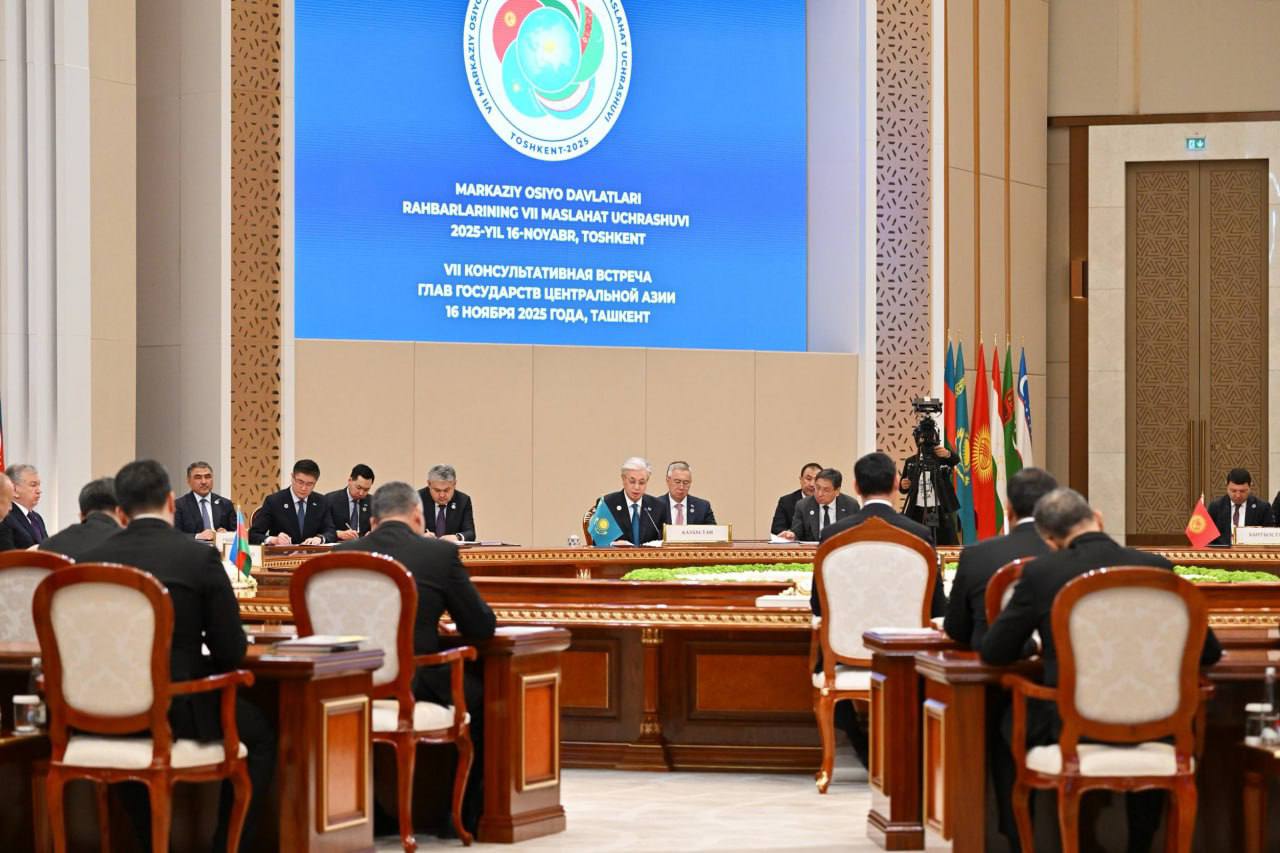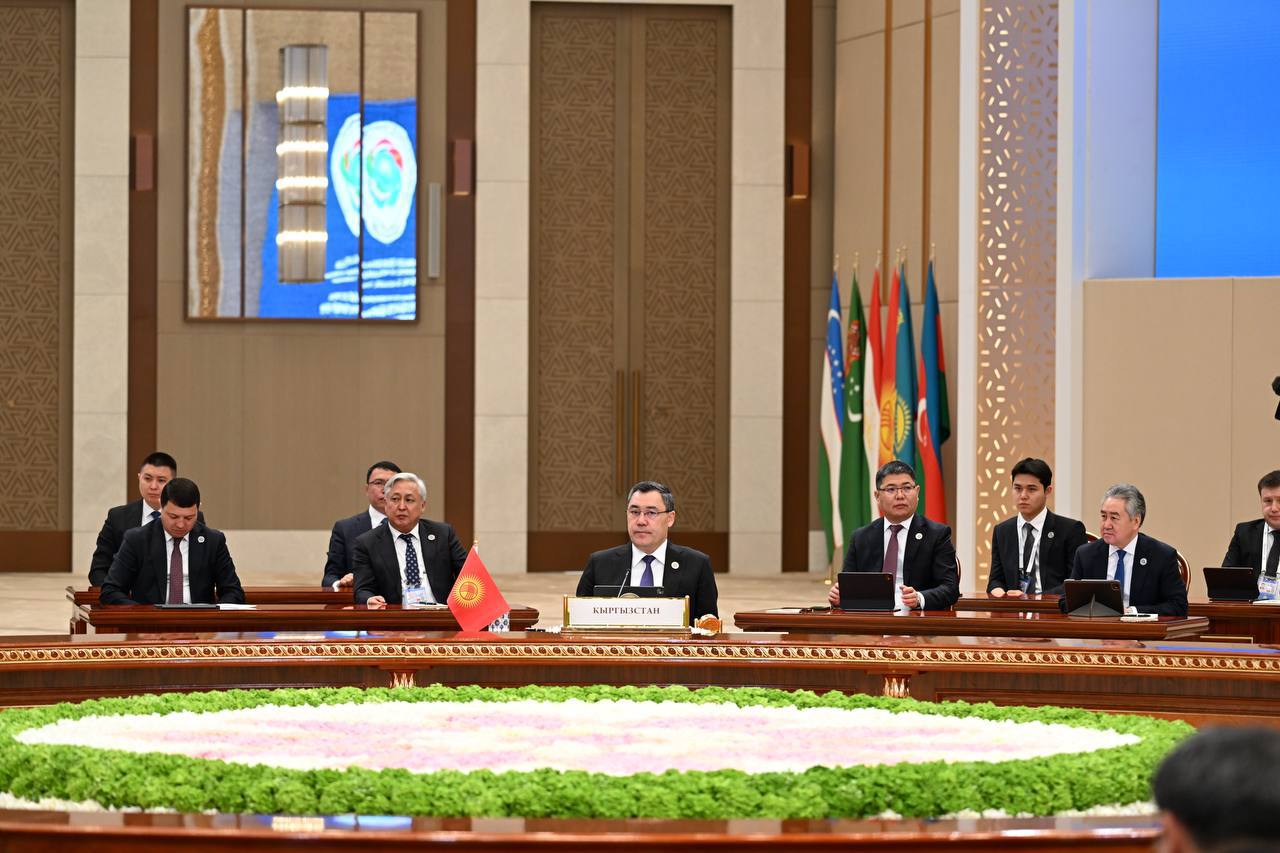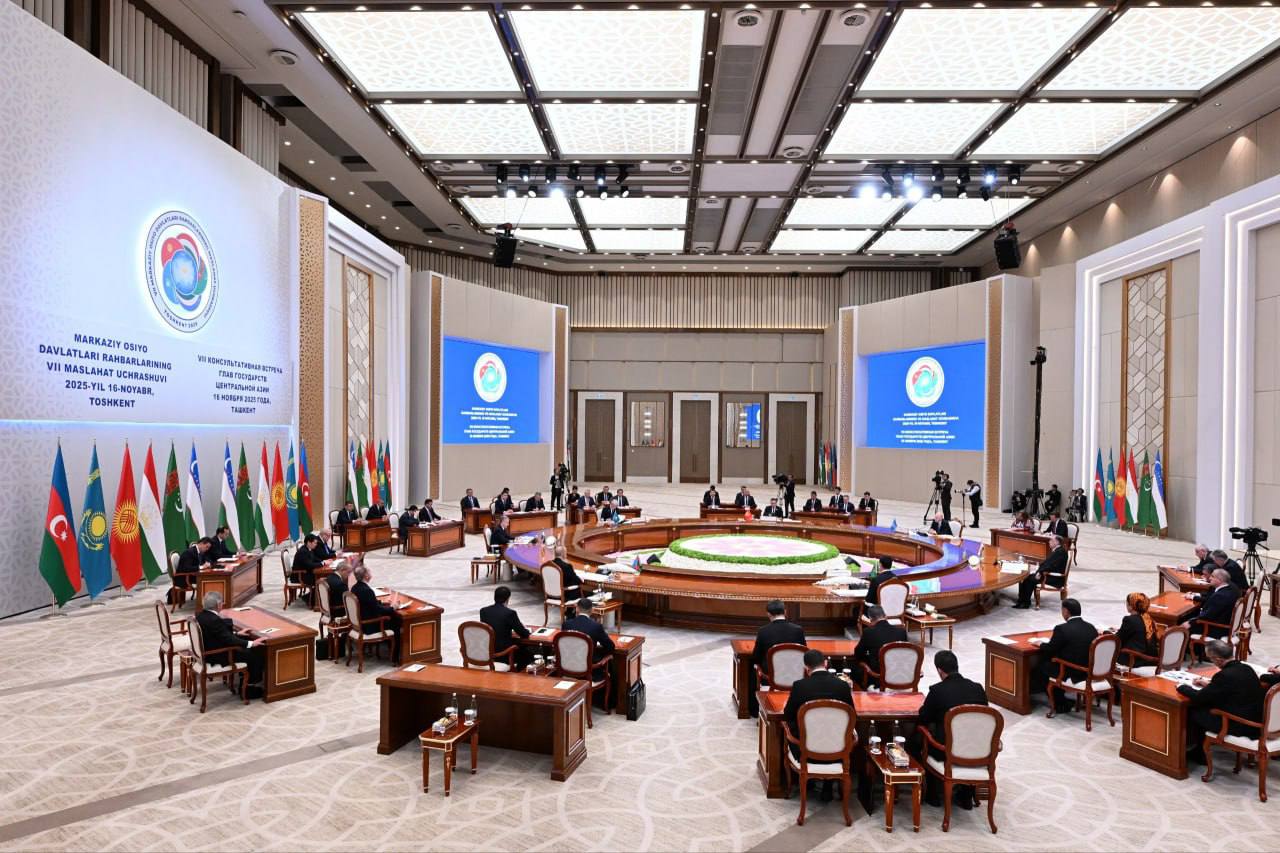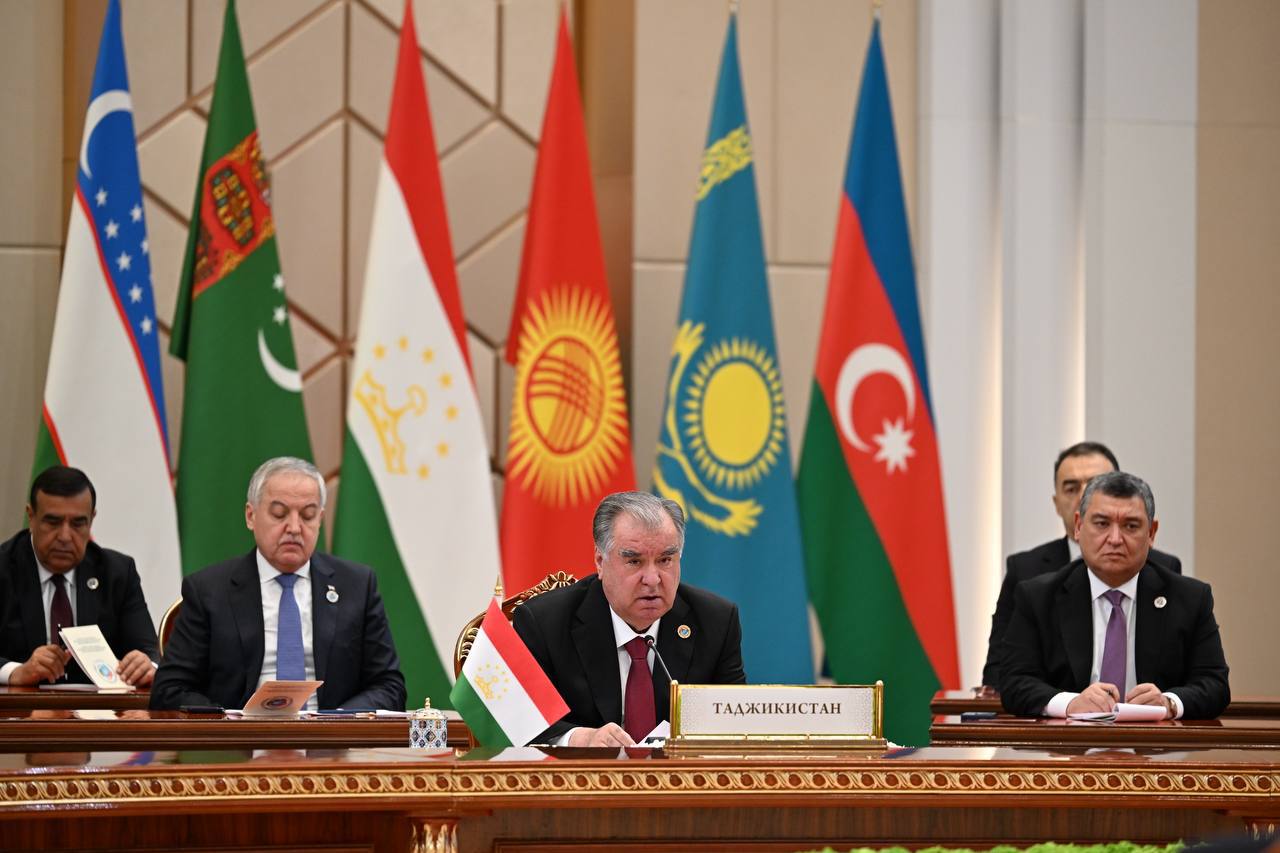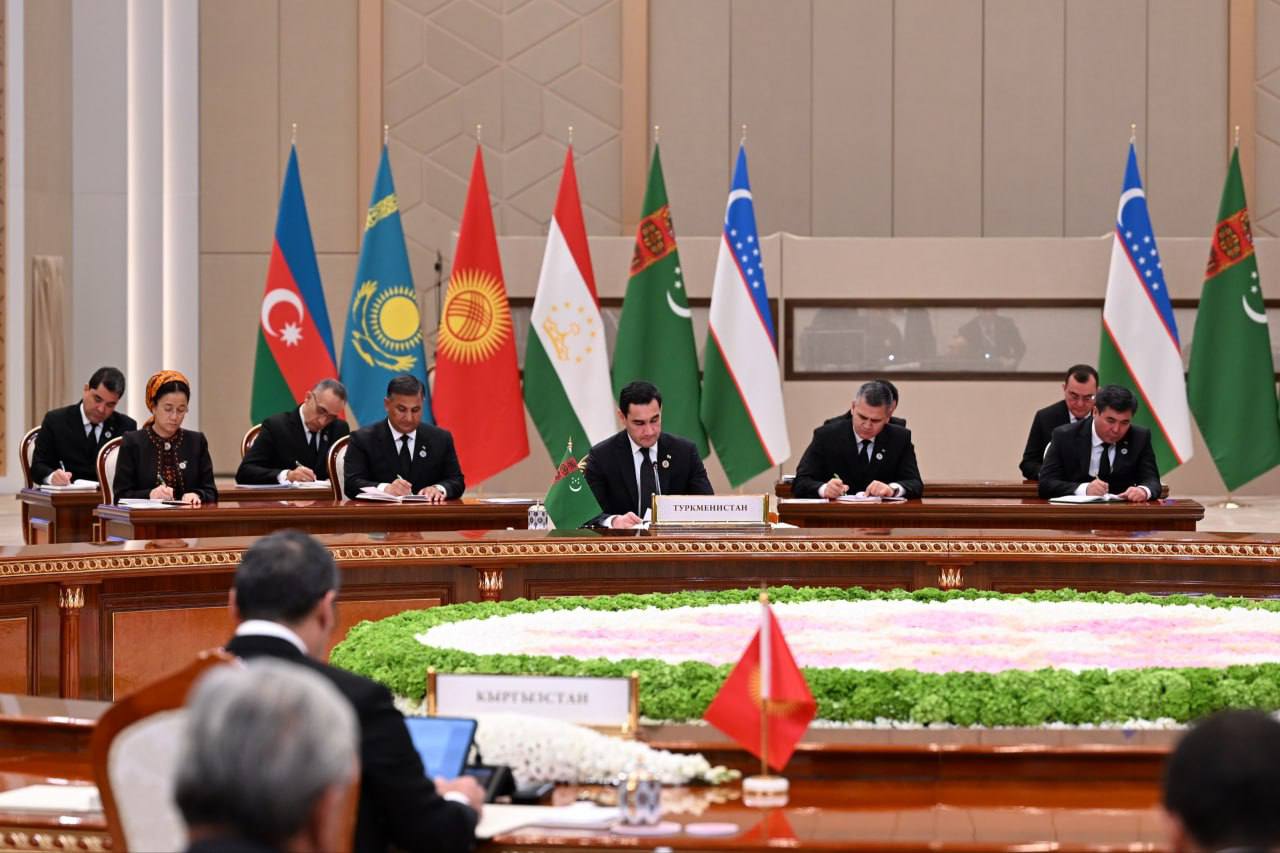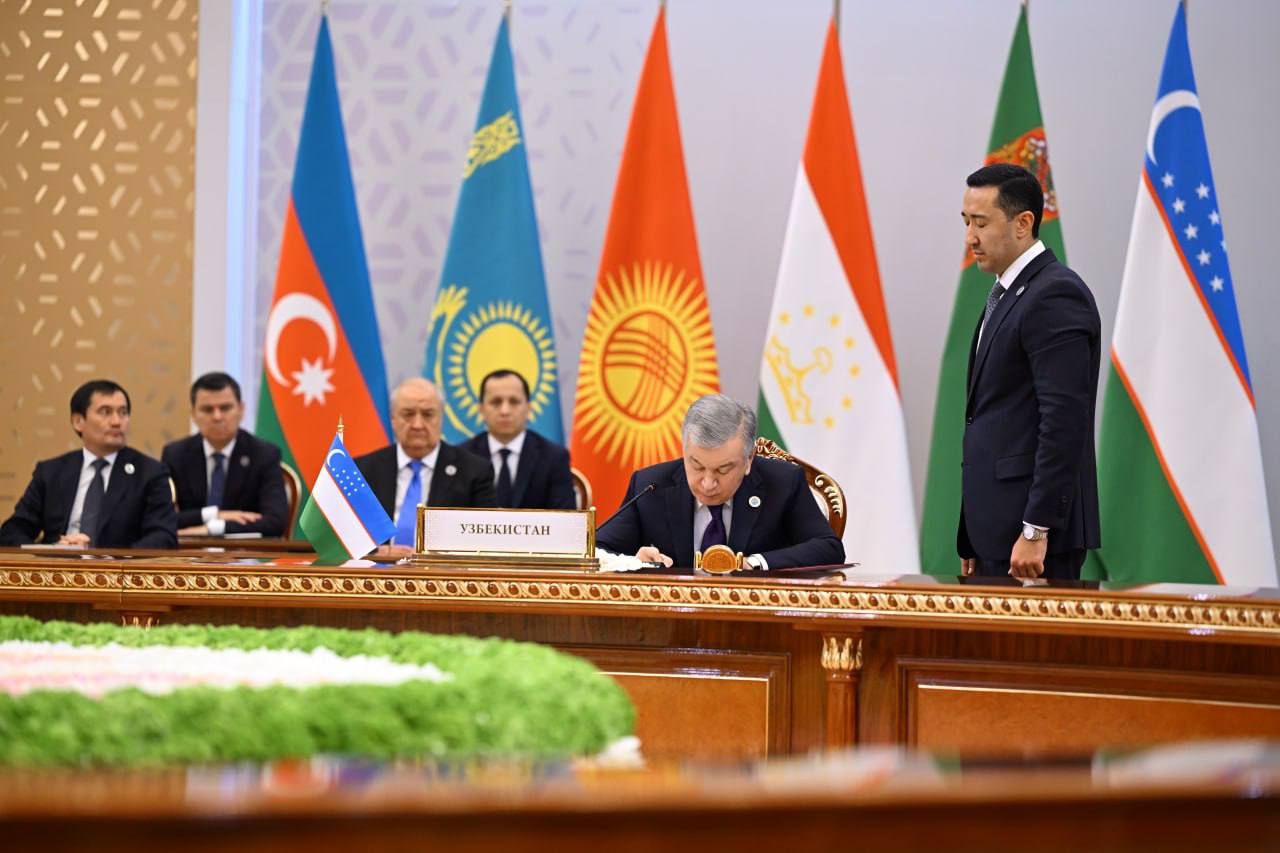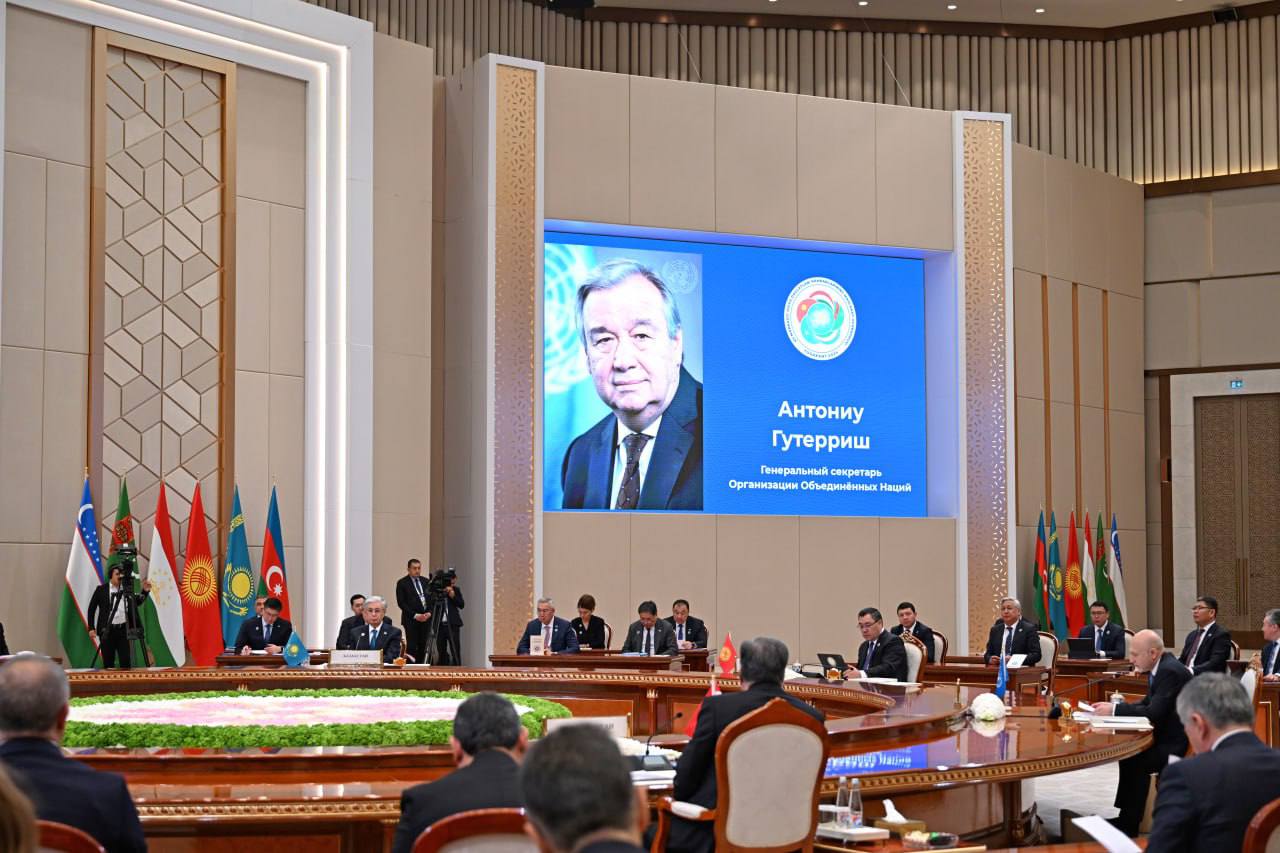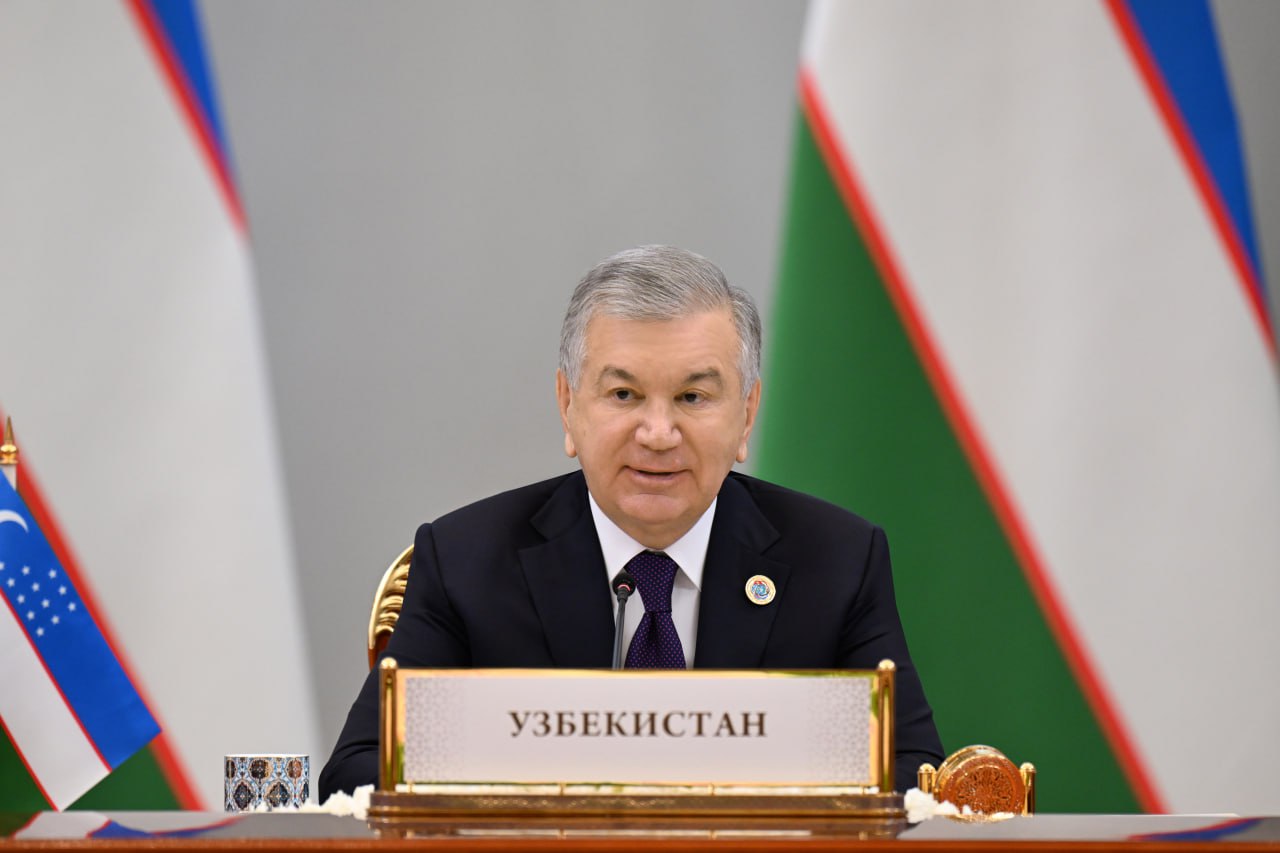
16.11.2025
On November 16, the seventh Consultative Meeting of the Heads of State of Central Asia was held under the chairmanship of the President of the Republic of Uzbekistan Shavkat Mirziyoyev.
The summit was attended by President of the Republic of Azerbaijan Ilham Aliyev, President of the Republic of Kazakhstan Kassym-Jomart Tokayev, President of the Kyrgyz Republic Sadyr Japarov, President of the Republic of Tajikistan Emomali Rahmon, President of Turkmenistan Serdar Berdimuhamedov, as well as the head of the UN Regional Centre for Preventive Diplomacy for Central Asia Kaha Imnadze.
In accordance with the agenda, issues of further strengthening regional cooperation, as well as the implementation of joint projects and initiatives in priority areas, were considered.
In the beginning of the summit, the Head of our state announced with satisfaction Azerbaijan's accession to the Consultative Meeting format as a full-fledged participant. As the Leader of Uzbekistan emphasized, this decision fully meets the interests of our peoples, who are strongly connected by a common history, ties of kinship, spiritual and cultural affinity.
He also expressed confidence that this strategic step will provide strong momentum to the Consultative Meetings, open new horizons for expanding trade, economic, investment, cultural, and humanitarian cooperation, as well as for developing consolidated solutions on issues of sustainable development.
- In essence, we will build a strong bridge between Central Asia and the South Caucasus and pave the way for the formation of a single space of cooperation, which will undoubtedly strengthen the strategic interconnectedness and stability of both regions, - noted President Shavkat Mirziyoyev.
The Leader of Uzbekistan then gave a brief assessment of the integration processes in the region in recent years. It was emphasized that thanks to open dialogue and active joint efforts, effective solutions have been found for a range of problems crucial to the region.
Territorial issues have been finally settled, border crossing points have opened, mutually beneficial cooperation in the water and energy sector has been established, transport links have been restored, and favorable conditions have been created for active trade, investment, and humanitarian contacts.
- Today, Central Asia is a space of dynamic development and fruitful cooperation, offering us new opportunities for sustainable growth and prosperity, - emphasized the Head of state.
The region is rapidly integrating into the global economy: its investment attractiveness is growing, export opportunities to third-country markets are expanding, and its transit potential is increasing. Last year, the volume of mutual trade among the region's countries reached $10.7 billion, and the total volume of investment in Central Asia increased by 17%.
Systematic measures are being taken to ensure security and stability and to counter the threats of terrorism, extremism, and transnational crime.
The region's stature as an international actor is being strengthened and its role in global affairs is increasing. Cooperation in the “Central Asia Plus” formats is intensifying, and the region is presenting a unified position on influential international platforms.
Confidence was expressed that with Azerbaijan's accession to the format, the region's voice in the global community will become even more significant.
It was noted that during Uzbekistan's chairmanship, more than 20 major events were held. The Forum for Interregional Cooperation at the level of deputy prime ministers was launched, and the first meetings of heads of defense agencies, special services, as well as ministers of geology, industry, agriculture, ecology, and culture took place. On the eve of the summit, the Dialogue of Women Leaders of Central Asia was successfully held in Tashkent.
It was emphasized that all these events are clear evidence of the systematic strengthening of the institutional foundations and mechanisms of regional partnership.
The Head of our state noted that against the backdrop of complex and unpredictable international political processes, strengthening the cohesion and mutual support of the region's countries is of particular importance.
- I am convinced that today we stand on the threshold of the region's historic revival as a New Central Asia. We have set ourselves the task of further strengthening the institutional foundations of our cooperation and developing a coordinated response to security and sustainable development challenges. It is important for us to have a clear understanding now of what we would like the region to look like in 10-20 years, - the President stated.
The leader of our country then put forward a number of initiatives to further strengthen regional cooperation.
Primarily, it was proposed to transform the current meetings from a consultative form of regional dialogue into the “Community of Central Asia” strategic format. It was noted that the first steps towards this could be the development of regulations on Consultative Meetings, the establishment of a Secretariat operating on a rotational basis, and the upgrading of the status of national coordinators to special representatives of the presidents.
The President also advocated for the creation of a Council of Elders composed of respected public figures with rich life experience, which would help strengthen ties between generations and reinforce regional solidarity and identity.
The leader of Uzbekistan highlighted the priority of reaching a qualitatively new level of trade, economic, and investment cooperation, which would allow for a 1.5 to 2-fold increase in the volume of mutual trade and total foreign trade turnover in the medium term.
The importance of eliminating administrative barriers, simplifying tax and customs procedures, and jointly using free economic and industrial zones was emphasized.
- In our view, the development and adoption of a Comprehensive regional program for trade and economic cooperation until 2035, covering the aforementioned issues, will create favorable conditions for a significant increase in trade volumes, - stated the leader of our country.
Furthermore, the need to adopt a Declaration on a common investment space to form a unified investment climate in the region was noted. The demand for developing a Program of Joint Measures for the Development of e-commerce was pointed out, aimed at harmonizing approaches in this area, creating virtual trading platforms, and establishing reliable digital payment systems.
The critical importance of the joint development of high-tech regional infrastructure and transport and logistics potential for the region's future was specially highlighted.
- We propose to consolidate efforts to implement strategically important regional projects for the construction and modernization of power plants, transmission lines, roads and railways, border crossing points, “green corridors”, fiber-optic lines, and others, - noted the Head of our state.
The construction of the China–Kyrgyzstan–Uzbekistan railway and the Trans-Afghan transport corridor were identified as priority projects for interregional transport connectivity. Attention was drawn to the significant potential of the Trans-Caspian routes connecting the region with European countries.
To coordinate work in these areas, it was proposed to create a Council for infrastructure development at the level of deputy prime ministers.
In the context of ensuring regional security and stability, the documents adopted at the summit - the Concept of Regional Security and Stability, as well as the Catalogue of Risks and Threats, were highly praised.
Taking into account the impact of the situation in Afghanistan on the security and sustainable development of the entire region, the importance was emphasized of integrating this country into regional infrastructure, energy, and transport projects.
The leader of Uzbekistan also advocated for transforming the recently held Ferghana Peace Forum into a regular international forum.
With environmental, climate, and water scarcity issues becoming increasingly critical for the region's countries, the importance of accelerating the adoption of the Concept of green development for Central Asia was emphasized.
Given the increasing water scarcity in the region, it was proposed to declare 2026-2036 the Decade of practical actions for the rational use of water in Central Asia.
The importance of actively involving neighboring Afghanistan in the regional dialogue on the joint use of the Amudarya basin's water resources was emphasized.
To invest in the professional training of personnel in the water sector, the President of Uzbekistan put forward an initiative to establish a Regional Center of Competencies in Water Management at the Tashkent institute of irrigation and agricultural mechanization engineers.
The Head of State also called for active participation in the World Water Conservation Forum, which is scheduled to be held in our country next year.
Special attention was paid to expanding cultural and humanitarian cooperation. In this context, hope was expressed that the Center for Islamic Civilization in Tashkent will become a center of attraction for young people, fostering their scientific and spiritual enlightenment.
It was also proposed to regularly hold the International Congress on spiritual heritage and enlightenment, which was held in our capital on the eve of the summit for the first time.
To further develop this topic, the President of Uzbekistan put forward an initiative to adopt a Special Resolution of the UN General Assembly dedicated to the contribution of prominent scholars and intellectuals from our region to the development of global enlightenment.
As part of scientific and educational cooperation, it was proposed to establish a Scientific Research Fund to finance interstate projects, encourage the academic community, and expand opportunities for implementing artificial intelligence technologies.
Concluding his speech, the Leader of Uzbekistan noted that the documents adopted today and the initiatives put forward embody the common goal of building a sustainable, secure, and prosperous Central Asia.
- I want to underscore that our strength lies in unity, and our path to success is through friendship and cooperation. Only by uniting, based on mutual respect, solidarity, and a strategic vision, will we achieve our noble goals, - noted Shavkat Mirziyoyev.
The Head of State also congratulated the President of Turkmenistan on assuming the chairmanship of the Consultative Meeting of Heads of State in 2026, which will be held in the new “Central Asia and Azerbaijan” format.
Speeches were then delivered by the leaders of the Central Asian states and Azerbaijan, as well as Kaha Imnadze, the head of the UN Regional Centre for Preventive Diplomacy for Central Asia, who delivered an address from UN Secretary-General António Guterres.

